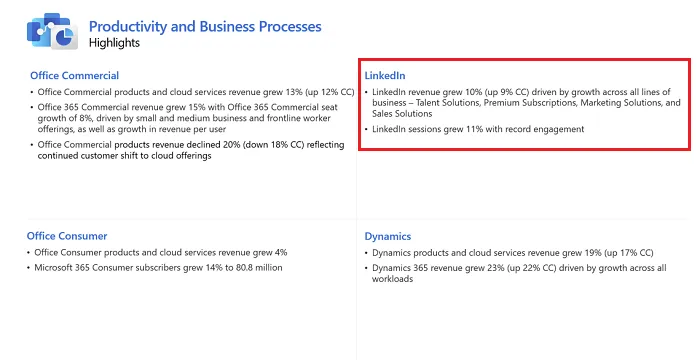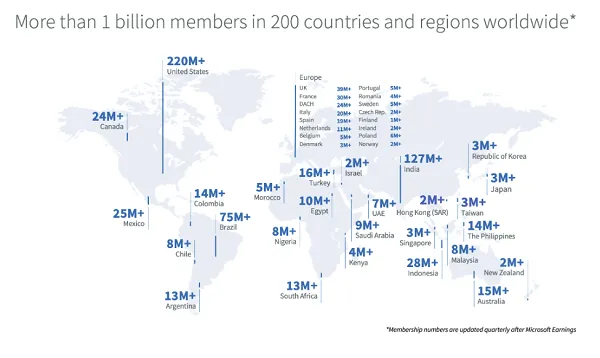It’s that time once again, when Microsoft tells us that LinkedIn saw “record levels of engagement” in the most recent reporting period, while offering no further insight and/or qualification of that claim, and we have to just accept it and move on.
Lo and behold:

Why is that not a surprise?
Because Microsoft always reports “record levels” of LinkedIn engagement, and has done since 2018.
“Really?”
Yes, really. Here’s a full track of LinkedIn’s “record engagement” updates:
- In October 2018, Microsoft reported record levels of engagement and LinkedIn sessions growth of 34%
- In January 2019, LinkedIn sessions rose 30% with record levels of engagement
- In April 2019, LinkedIn saw 24% sessions growth, with record levels of engagement
- July 2019 – sessions up 22%, record levels of engagement
- October 2019 – sessions up 22%, record levels of engagement and job postings
- January 2020 – sessions up 25%, record levels of engagement
- April 2020 – sessions up 26%, with record levels of engagement
- July 2020 – LinkedIn sessions grew 20% (no mention of record engagement this time around)
- October 2020 – sessions up 31% with record levels of engagement
- February 2021 – sessions up 30%, record levels of engagement
- April 2021 – sessions up 29%, record engagement
- July 2021 – sessions up 30%, record engagement
- October 2021 – sessions up 19%, record engagement
- January 2022 – sessions up 22%, record engagement
- April 2022 – sessions up 22%, record engagement
- October 2022 – sessions up 24% with record engagement
- January 2023 – sessions up 18% with record engagement
- April 2023 – sessions up 15% with record engagement
- July 2023 – sessions up 12% with record engagement
- October 2023 – sessions up 12% with record engagement
- January 2024 – sessions up 12% with record engagement
And then today’s result, an additional 11% growth in sessions, with “record engagement.”
So one time, in July 2020, LinkedIn didn’t report “record engagement”, but in every other update, for going on six years, LinkedIn has continued to see new record highs in in-stream interaction, according to Microsoft’s tracking.
“Is that even possible?”
I don’t know, maybe. If you keep adding new users, then overall activity would ideally also continue to rise, and LinkedIn has kept adding new members over this period.
In fact, the platform now claims to have over a billion members worldwide:

But there is also a distinction between “members” and “users,” and while LinkedIn may have a lot more people signing up, that doesn’t necessarily mean that they’re using the app, and it certainly doesn’t mean that they’re coming back every day.
I also have questions on this element, considering that LinkedIn shut down its Chinese business in May last year, which should have seen its member count reduce by around 60 million. But it didn’t.
That could make sense, I guess, if LinkedIn were counting cumulative profiles created, even if they’re then deleted at a later stage. But that’s also not really indicative of anything.
The platform formerly known as Twitter, for example, claims to be hosting over 1.5 billion dormant profiles. Which, if it used LinkedIn’s reporting logic, would mean that X could claim to have over 2 billion “members”. But if those users are not active, then it doesn’t really matter, right?
Regardless, LinkedIn is seeing “record levels” of engagement, while its overall revenue is up 10%, driven, Microsoft says, by “all lines of the business.”
Don’t ask questions, there are no specifics here. LinkedIn’s just doing good.
[Thumbs up emoji]
You can check out Microsoft’s Q3 2024 report here.